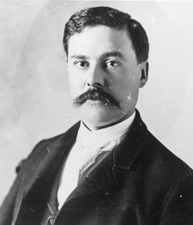Each morning I take a bus to the metro, then a short metro ride to work. Each morning I get on the bus, put on my headphones, or open my ipad to listen or read whatever book I am reading. As I do this I notice this seems to be what everyone else is pretty much doing as well. There is seldom anyone talking or really even noticing one another. This pattern is pretty consistent with public transportation commuting, at least around the DC metro region. This had got me thinking a little while ago, why don’t we, (I) ever talk to anyone? Is it because I’m not interested, don’t want to bother anyone, or just like keeping to myself? I’m sure it’s a combination of all three, and more, but the more I thought of this, the more I began to think of how disconnected we are to other parts of our life and society. Are we alienated to an extent that we don’t feel a connection to the things around us? If I were to go out on a limb I’d guess, yes.
I don’t know if it’s possible to feel a connection to the place of your ancestors, but I’ve always been drawn to the philosophers’, thinkers, humanitarians of the old Germany. I don’t know if that has anything to do with my mother being from Germany, and subsequently my ancestral heritage all being from there as well. I was reading something that was discussing Marx and his theory of alienation, which lead me to think more about the bus ride and the headphones. The two unrelated, but I couldn’t help but wonder, are we, as a society, or individuals feeling alienated in our lives?
In 1972, Scottish Union Activist, Jimmy Reid gave a speech at Glasgow University, where he stated, “People feel alienated by society.” Mr. Reid spoke a lot about the ideas of economic alienation, and with the recession affecting so many people, the inequality gap so wide, it’s hard not to feel it. How is our grasp of humanity and citizenship when so many of those around us may be experiencing a sense of alienation?
Do we engage enough? Or do we brush off those who feel most effected as dead-beats, cast them off for not belonging. This type of feeling is more geared to social alienation. Without hypothesizing, and assuming too much, I wonder how many of the perils and travesties we face at the hands of others may have some, even if just a mere mark of social alienation, to where they felt “what is there to lose?”
As scripture so quotes, “what doth it profit a man if he gains the whole world and suffers the loss of his soul?” (Mark 8:36) Much of my attention I have noticed is on what type of job am I going to get, how can I make more money? I don’t want to say it’s bad or wrong to want to be successful, to be able to take care of yourself and family, to have the abilities to enjoy the things of life. This is how our society is setup, good or bad. But I do know, I have felt many times, the work I do, I don’t feel too connected to it. Now, that may just mean I am in the wrong job, or just haven’t found what I love, but when it is solely centered on how much money, profit can I make, that is when I know there is a loss of what is important. Unfortunately, it has been my observation that that idea, to gain as much profit as possible is overwhelmingly the goal of many.
The power and influence that comes with those who have immense wealth is great, especially in the political area. The ability to influence politicians, legislation, and government is something I think that makes many feel a sense of alienation. My voice does not equal the voice of someone who has the capacity to hire lobbyists, donate large lumps of cash in return for votes. “Government by the people for the people becomes meaningless unless it includes major economic decision-making by the people for the people. This is not simply an economic matter. In essence it is an ethical and moral question, for whoever takes the important economic decisions in society ipso facto determines the social priorities of that society.” (Reid)
Now, through the sense of alienation whether social, economic, or political there are many examples of society coming together. Of successful businessmen who set of charities and give to organizations whose goal it is to alleviate suffering and inequalities, and of communities stretching in arms to pick up the pieces after a tragedy.
“To measure social progress purely by material advance is not enough. Our aim must be the enrichment of the whole quality of life. It requires a social and cultural, or if you wish, a spiritual transformation of our country.
All that is good in man’s heritage involves recognition of our common humanity, an unashamed acknowledgement that man is good by nature. Burns expressed it in a poem that technically was not his best, yet captured the spirit. In “Why should we idly waste our prime…” (Reid)
“The golden age, we’ll then revive, each man shall be a brother,
In harmony we all shall live and till the earth together,
In virtue trained, enlightened youth shall move each fellow creature,
And time shall surely prove the truth that man is good by nature.”












